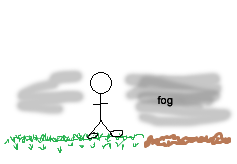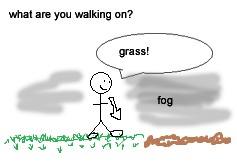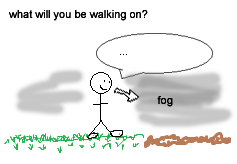February 19, 2010 — All the time I overhear people saying things like "I will start exercising everyday" or "We will ship this software by the end of the month" or "I will read that book" or "I will win this race." I'm guilty of talking like this too.
The problem is that often, you say you will do something and you don't end up doing it. Saying "I will do", might even be a synonym for "I won't do".
Why does this happen? I don't think it's because people are lazy. I think it's because we overestimate our ability to predict the future. We like to make specific predictions as opposed to predicting ranges.
I'll explain why we are bad at making predictions in a minute, but first, if you find yourself making predictions about what you will do that turn out to be wrong, you should fix that.
You can either tone down your predictions, giving ranges instead. For instance, instead of saying "I think I will win the race", say "I think I will finish the race in the top 10".
Or, even easier: stop talking about things you will do entirely, and only talk about things you have done.
So, in the race example, you might say something like "I ran 3 miles today to train for the race." (If you do win the race, don't talk about it a lot. No one likes a braggert).
Why we are bad at making predictions.
Pretend you are walking down a path:

Someone asks you whether you've been walking on grass or dirt. You can look down and see what it is:

Now, they ask you what you will be walking on. You can look ahead see what it is:

Easy right? But this is not a realistic model of time. Let's add some fog:

Again, someone asks you whether you've been walking on grass or dirt. Even with the fog, you can look down and see what it is:

Now, they ask you what you will be walking on. You look ahead, but now with the fog you can't see what it is:

What do you do? Do you say:
- Dirt
- Grass
- I don't know. It could be either dirt or grass, or maybe something else entirely.
- I don't know. I've been walking on grass. Not sure what I'll be walking on in the future.
In my opinion you should say something like 3 or 4.
This second example models real life better. The future is always foggy.
Why is the future foggy?
I don't know. Maybe a physicist could answer that question, but I don't know the answer. And I don't think I ever will.
Related Posts
Notes
- In other words, don't over-promise and under-deliver.